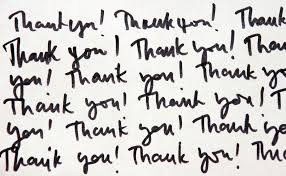Stewartship

" … stewardship seems to be forever."
Moderns think of ourselves as stewards more than owners. The title might insist that we own that home, but we privately acknowledge that this home will pass on to others and that we no more than steward the property until that transition occurs. We own nothing but the title. These properties own us and our loving attention much more than we ever inflict our will upon them. Our responsibilities as stewards extends no further than we believe them to extend, with some seeming to deny any inherent obligations at all, behaving like renters using up the property rather than as loving nurturers seeking to preserve it and pass it on. ©2018 by David A. Schmaltz - all rights reserved
I'm sort of a sucker for stewardship. I can't seem to locate the boundary between well-intended nurturing and self-destructive care-taking. Sometimes my self-imposed responsibilities overwhelm me. I've been known to stagger away overwhelmed from some stewarding relationships, wondering just how much more I can reasonably contribute to an apparently helpless object of my affection. Too much doing-for can leave me feeling absolutely done for, and I only seem to recognize the limits after severely wounded by overly responsible engagement. Stewardship wasn't supposed to mean placating helplessness on any parties part. Stewardship might be a relationship that requires active co-involvement between the steward and the stewarded.
The Villa Vatta Schmaltz has overwhelmed The Muse and I plenty in the seventeen years we've "owned" the place. Some days, it's seemed like its sole purpose in our lives has been to somehow suck the last dram of vitality from our souls, as well as drain any hope of positive cash flow from our future. For a few years, it seemed as if every time we turned around, a furnace or a roof needed replacing, while the rental income couldn't quite match the mortgage payment. I scraped the exterior to bare wood, repainting every square inch, refinishing window sashes, replacing window glass and trim boards. The trees need pruning every spring, the yard tending year around. This latest remodeling project, tearing up the whole back end of the place, will most certainly not be the last effort expended to satisfy our perhaps self-destructive sense of stewardship.
The Zoom Car, too, has been an extended exercise in perhaps misguided stewardship, for one can never know whether their stewardship might preserve any so-called possession. I extend my loving care, eventually understanding that stewardship's magic emerges from exercising this intention rather than upon any presumed potential return on that investment, which cannot be properly characterized as an investment, anyway. I think of that care as more of a vestment, a garment worn for the continuing ritual of appreciation. The Zoom Car, a friend's throw-away when we acquired it, has so far needed several serious operations. When the mechanic prescribed a new drive train and U joint, The Muse balked, insisting that our period of responsible stewardship had, with this diagnosis, come to an end. I wondered how she could feel so certain of her conclusion.
The Muse is my third wife, prima facie evidence that I have not managed to extend all of my attempts at stewardship ad infinitum. I've seen these relationships end before, but I always grieve at the end of them, feeling as though I failed a sacred responsibility. The very underlying Stewardship principle which insists that no relationship is permanent seems to sow the seeds of eventual heartbreak. If I own nothing, nothing could possibly be mine except in impermanent responsible relationship; relationships which, by their very definition, must at some point reach the point where the steward, as a final act of sacred stewardship, simply walks away, leaving the care to another or to the Gods. We could extend our relationship with The Zoom Car, if we choose to extend it. These choice points always choke my enthusiasm. I turn somber and sullen. My heart breaks.
I suppose my fraternal grandmother, Grandma Stewart, knew these choke points well. Married three times, just like me, I imagine her heart breaking at each transition point. I imagine myself inheriting some of her coping strategies, as progeny inevitably seem to. One of my great great grandmothers wrote poems for her loved ones' birthdays, a practice I'd engaged in for years before I learned of hers. I figure Grandma Steward fell in love with the objects of her stewardship, too, treating her car and her home as sentient family members, genuine loved ones with names like The Villa Vatta Schmaltz and The Zoom Car, and that she grieved deeply whenever she lost them. It doesn't matter whether the loss comes as a result of choice or chance, the grieving seems just as real and every bit as searing either way.
Next week, we might have a new car, another so-called possession actually possessing us for a time. It will shortly acquire a name but never supplant The Zoom Car's permanent place in our hearts, … well, in my heart anyway. While possession might be eternally impermanent, stewardship seems to be forever. Gratitude along with the grieving might be the only decent response.


